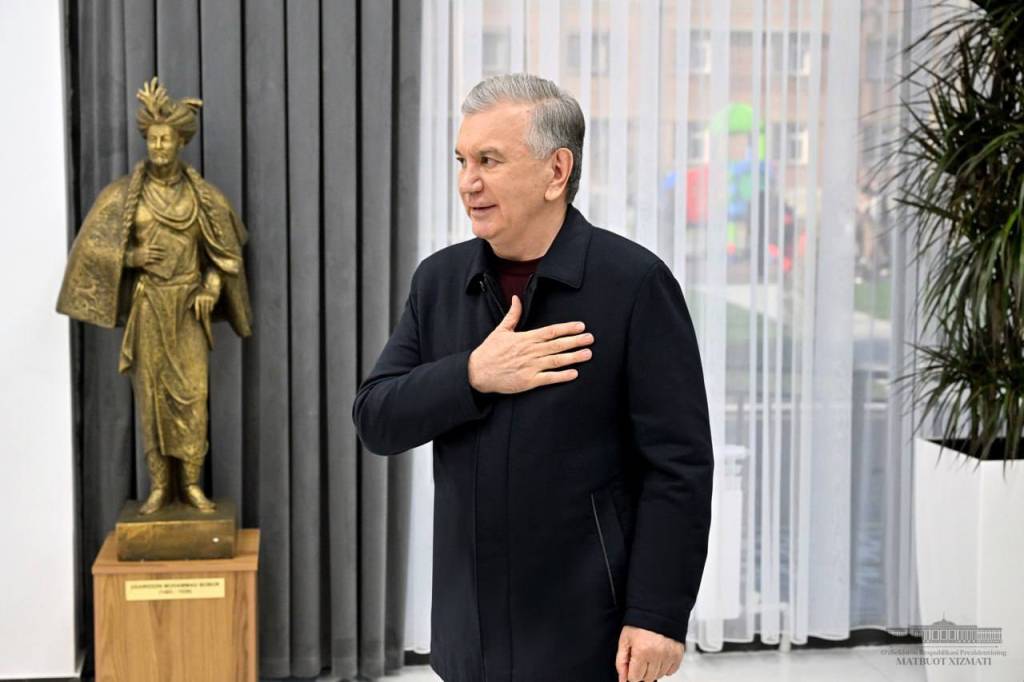WNAM MONITORING: President Shavkat Mirziyoyev visited the Khushnud mahalla of Yangihayot district and became acquainted with the population’s life and the changes taking place.
The mahalla is new – it was formed in 2021. More than 11 thousand people live in 48 apartment buildings and 625 households. There is a kindergarten, a sports school, a family clinic, a private clinic, manufacturing enterprises, shops, and consumer services. This year, thanks to 49 micro-projects, 116 citizens were employed.
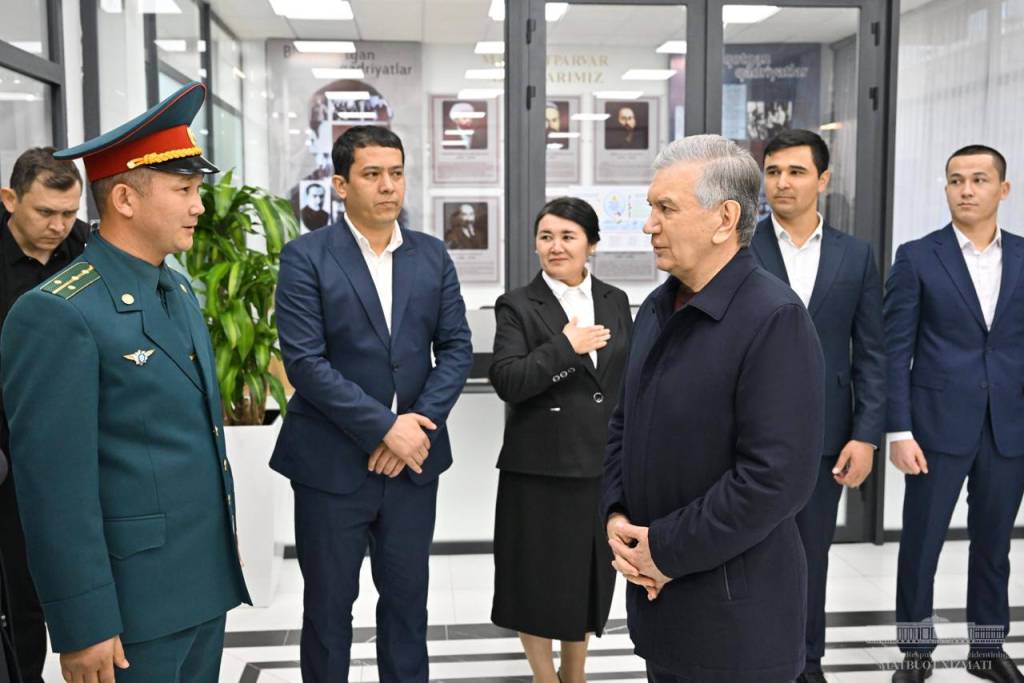
Previously, these places were outskirts and unsightly. Since 2018, modern houses, children’s playgrounds, and sports grounds have been built, and the adjacent territory has been landscaped.
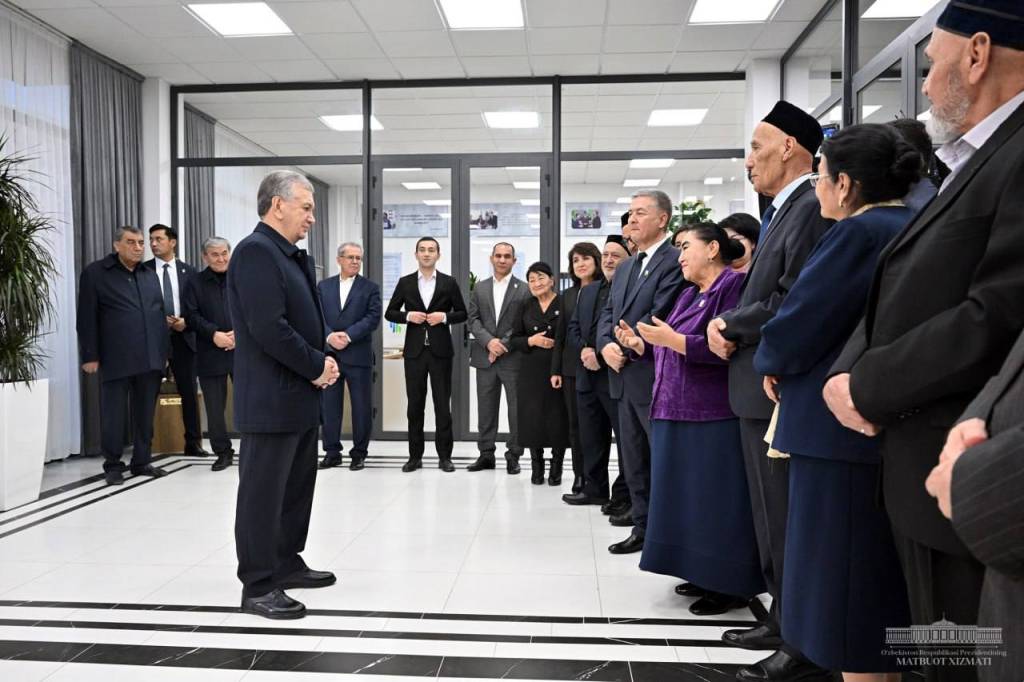
A three-story mahalla building was built this year. On the first floor are the offices of the chairman and employees of the mahalla, a library, and a Jadid corner. There is a training center for exact sciences and foreign languages on the upper floors and a fitness room. A mono-center for professional orientation of youth has been organized.
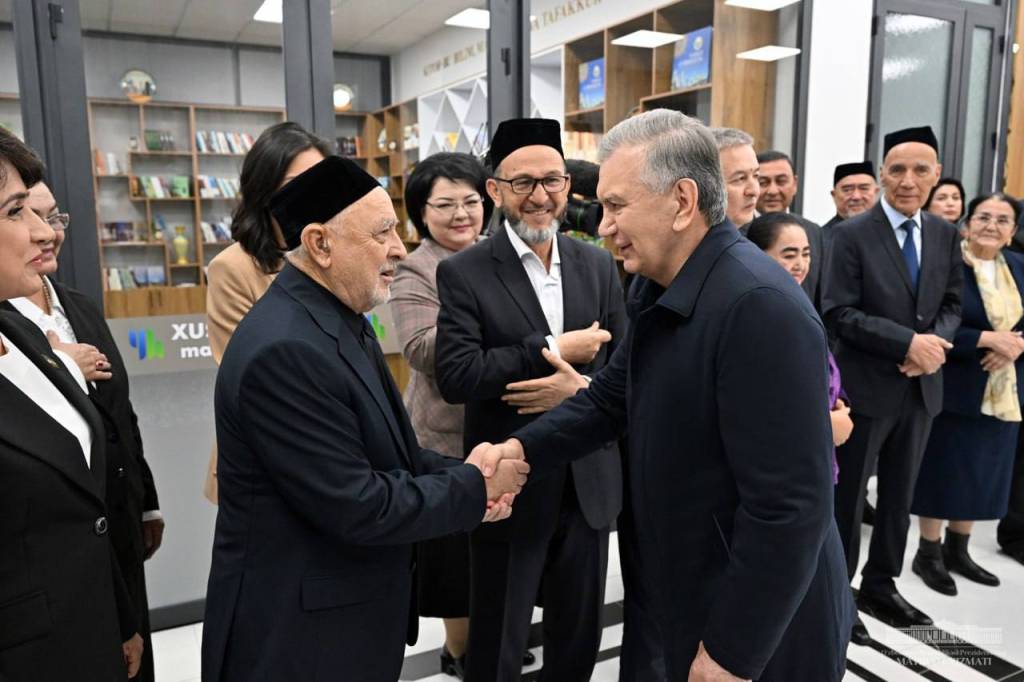
The Head of state got acquainted with the created conditions. He talked with mahalla activists and aksakals. They said that the Yangihayot district has changed rapidly in recent years. New transport facilities and enterprises have been built, and all spheres have started developing.
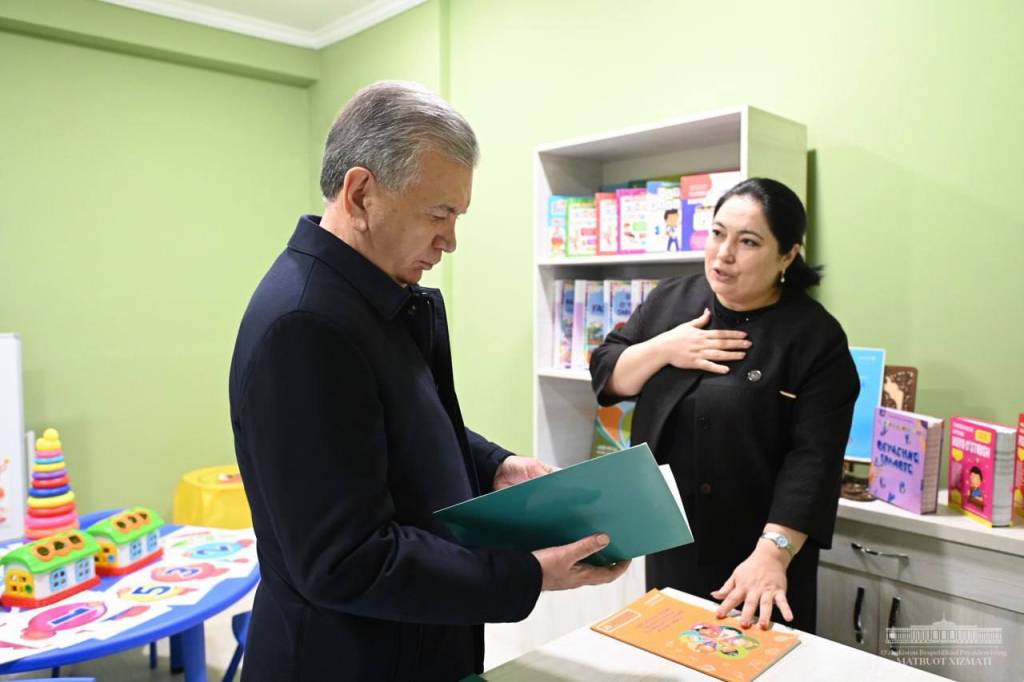
“The purpose of our visit is to see the results of our decisions and people’s lives. As in this district, we strive to develop each region, create amenities for people, and increase the number of jobs. At the same time, we pay great attention to education, upbringing, and culture. If knowledge and spirituality are strong, the economy will develop”, Shavkat Mirziyoyev said.
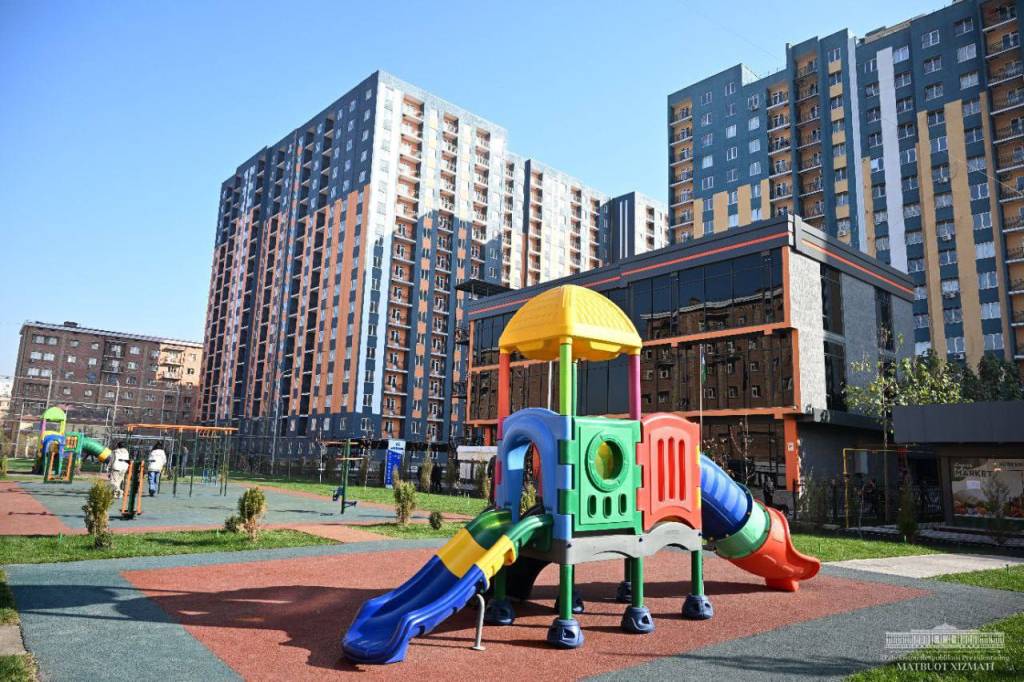
The President also got acquainted with the activities of a private kindergarten for 150 children in the mahalla, where modern conditions have been created. It is located on the first and second floors of a 16-storey building, commissioned this year. Special attention was paid to the harmonious combination of modernity and national traditions when equipping the institution’s premises.
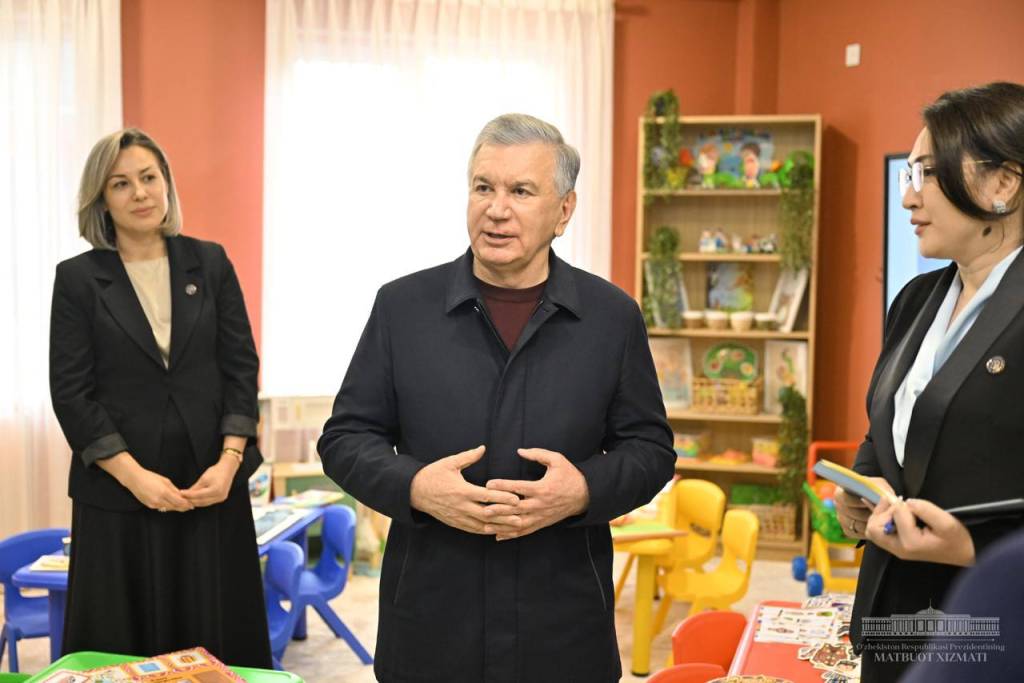
Many women with small children live in the mahalla. Jobs are being created for them in nearby districts in areas such as sewing and confectionery production. This kindergarten has made their worries much easier. They will be able to work peacefully and bring additional income to their families.
It was noted that essential programs in Uzbekistan are implemented in mahallas, and the system is given great powers and opportunities. It was emphasized that this work is reflected in the improvement of mahallas and the improvement of the population’s well-being.

